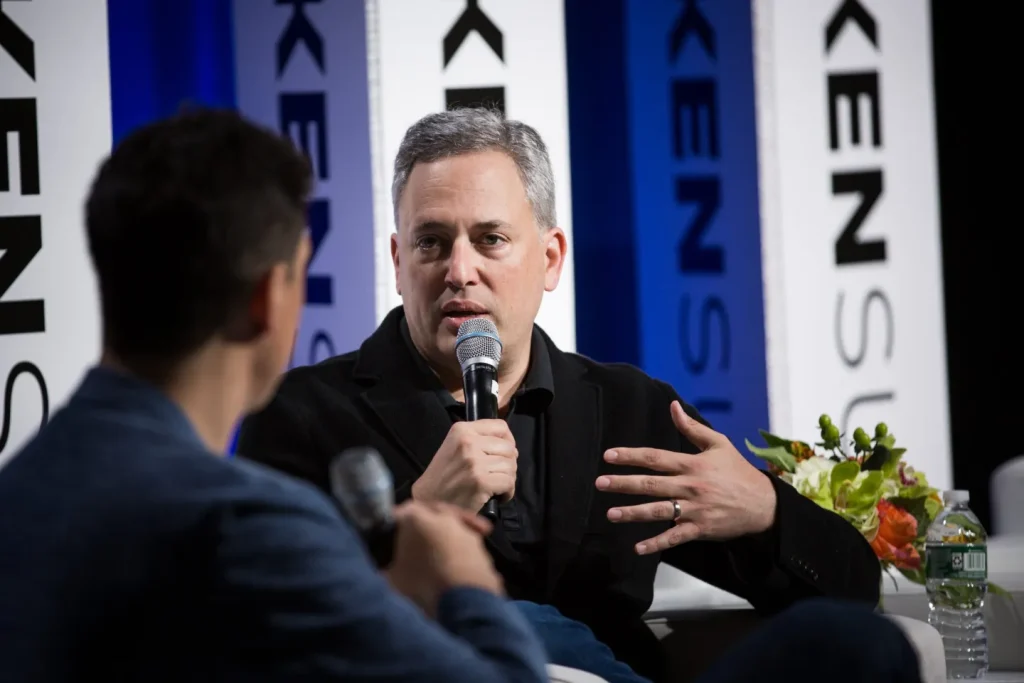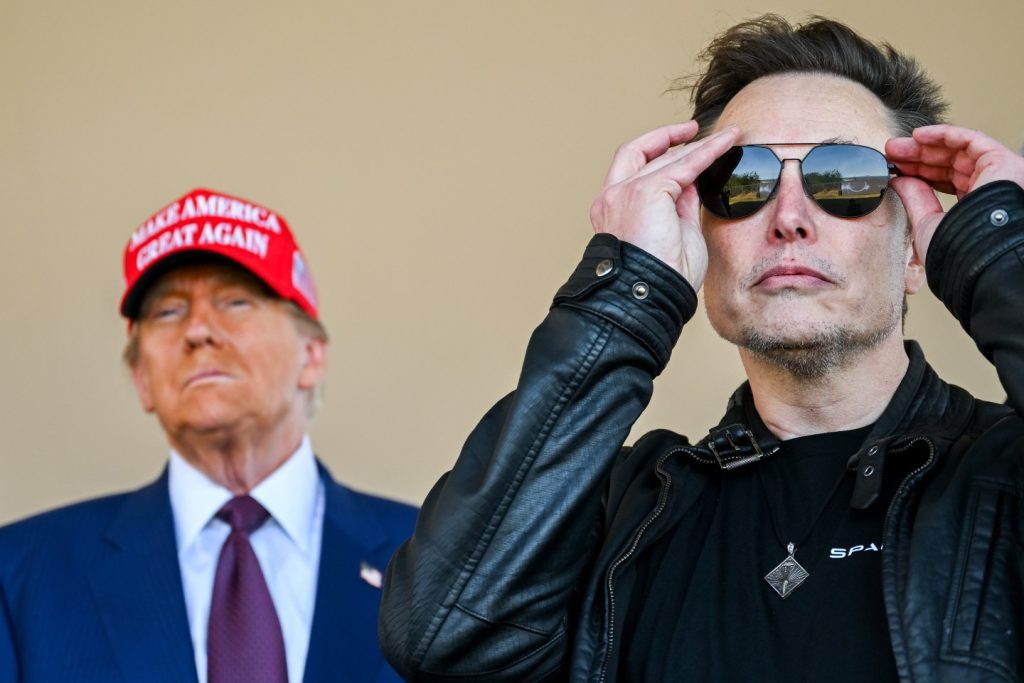Trump picks Musk ally David Sacks as crypto and AI tsar

In a move that has stirred significant attention within both the tech and political communities, former U.S. President Donald Trump has appointed David Sacks, a well-known ally of Elon Musk and a prominent Silicon Valley entrepreneur, as the new crypto and AI czar. This appointment comes amid growing concerns about the rapid expansion of artificial intelligence (AI) and the increasingly influential role of cryptocurrencies in global financial systems. With this bold move, Trump aims to harness the expertise of an influential figure in the tech industry to navigate these complex and fast-evolving sectors.
Who is David Sacks?
David Sacks is a venture capitalist, entrepreneur, and a key figure in Silicon Valley. He gained prominence as one of the early members of PayPal, where he held various leadership roles. His work at PayPal, a company founded by Peter Thiel, Elon Musk, and others, helped him establish a reputation in the tech world. After PayPal, Sacks became a well-known investor and entrepreneur, founding or investing in several successful startups, including Yammer, which was acquired by Microsoft in 2012 for $1.2 billion.
Sacks has also been closely associated with Elon Musk, with whom he shares a long-standing professional relationship. He was involved in various initiatives with Musk, including working with him at PayPal and having a significant role in Musk’s ventures, such as the creation of SpaceX and Tesla’s endeavors. Over the years, Sacks has been an advocate for innovation in both the tech and financial sectors, making him a highly influential figure in the modern entrepreneurial landscape.
Beyond his entrepreneurial ventures, Sacks is known for his outspoken views on emerging technologies, particularly cryptocurrencies and AI. His opinions have often aligned with Musk’s vision of an innovative, decentralized future. This shared perspective has likely played a role in Trump’s decision to appoint Sacks to this pivotal position.
The Role of Crypto and AI Tsar
The role of crypto and AI czar, as envisioned by Trump, will likely focus on providing strategic oversight and guidance for the United States’ evolving policies on artificial intelligence and cryptocurrency. These sectors are of increasing importance to national security, global financial stability, and the economy, making it critical for the U.S. to have a clear vision and leadership in managing them.
- Cryptocurrency: The rapid rise of cryptocurrencies like Bitcoin, Ethereum, and newer digital assets has led to both excitement and concern in the global economy. Cryptocurrencies present an innovative alternative to traditional banking and financial systems but also come with challenges regarding regulation, security, and potential use in illicit activities. Sacks’ expertise in both the tech and finance sectors positions him well to help the U.S. navigate the complexities of crypto adoption, regulation, and its role in the global financial system.
- Artificial Intelligence: AI has already begun to transform industries from healthcare to finance, and its potential impact on sectors like automation, defense, and education is vast. However, with such power comes ethical, legal, and societal concerns. Issues such as data privacy, bias in AI algorithms, job displacement, and the future of human-AI interaction are just a few of the critical topics that will need to be addressed. As someone deeply embedded in the tech world, Sacks is poised to help the U.S. navigate these challenges while encouraging responsible innovation.
By appointing Sacks to oversee both these areas, Trump appears to be prioritizing technological innovation while aiming to balance regulation with economic growth and national security. His focus on these industries signals that the U.S. intends to maintain its leadership role in the global tech race, while also ensuring that these technologies are developed and deployed in a way that is secure, ethical, and beneficial to American interests.
The Trump Administration’s Focus on Technology
Trump’s appointment of Sacks reflects a broader pattern in his administration’s approach to technology. During his presidency, Trump took several steps to engage with the tech industry, particularly around issues of national security, digital innovation, and economic growth. However, Trump’s relationship with Big Tech companies was often contentious, with his administration taking action on issues such as data privacy, social media regulation, and trade with China. His appointment of a crypto and AI czar could be seen as an attempt to create a more structured framework for these emerging technologies, especially in response to the increasing importance of tech in geopolitical relations.
The U.S. has faced growing competition from other global powers, particularly China, in the fields of AI and cryptocurrency. China’s aggressive push for AI dominance, combined with its development of a central bank digital currency (CBDC), has raised concerns among U.S. policymakers. In response, the U.S. has been looking for ways to ensure its technological leadership while addressing potential risks in the crypto and AI spaces. Appointing a figure like David Sacks, who has deep connections in the tech world and understands the nuances of these industries, could help the U.S. stay competitive.
Reactions to the Appointment
The reaction to David Sacks’ appointment as the crypto and AI czar has been mixed. Supporters of Sacks argue that his deep understanding of Silicon Valley, his connections with key figures like Elon Musk, and his experience in venture capitalism make him well-suited for the role. They believe that his hands-on experience with disruptive technologies will allow him to provide valuable insights and foster innovation in the U.S.
Critics, however, have raised concerns about the potential influence of Silicon Valley elites in shaping U.S. policy. Some argue that appointing a figure with deep ties to private tech companies could lead to conflicts of interest or a regulatory environment that favors corporations over public welfare. Others question whether Sacks, despite his entrepreneurial success, has the policy experience necessary to effectively govern and regulate emerging technologies that have broad societal impacts.
The Future of Crypto and AI Under Sacks’ Leadership
Under Sacks’ leadership, the U.S. could see significant developments in both the cryptocurrency and AI sectors. For cryptocurrency, the focus may be on establishing a regulatory framework that protects consumers and investors while fostering innovation. Sacks could also work on developing strategies for dealing with the growing role of decentralized finance (DeFi) and the rise of central bank digital currencies (CBDCs), both of which could have far-reaching effects on the global financial system.
In the realm of artificial intelligence, Sacks may push for the U.S. to maintain its leadership in AI research and development while addressing concerns over data privacy, algorithmic bias, and the potential for job displacement. His experience with cutting-edge technologies could also make him a strong advocate for policies that support both public and private sector investment in AI, ensuring that the U.S. remains at the forefront of this transformative field.
The appointment of David Sacks as crypto and AI czar marks a significant moment in the ongoing development of U.S. policy in these emerging industries. With his strong ties to Silicon Valley and expertise in both the tech and finance sectors, Sacks has the potential to guide the U.S. through the complexities of cryptocurrency and artificial intelligence. Whether or not his appointment will be successful in reshaping U.S. tech policy remains to be seen, but it is clear that Trump is signaling his intention to take a more active role in shaping the future of these industries.






